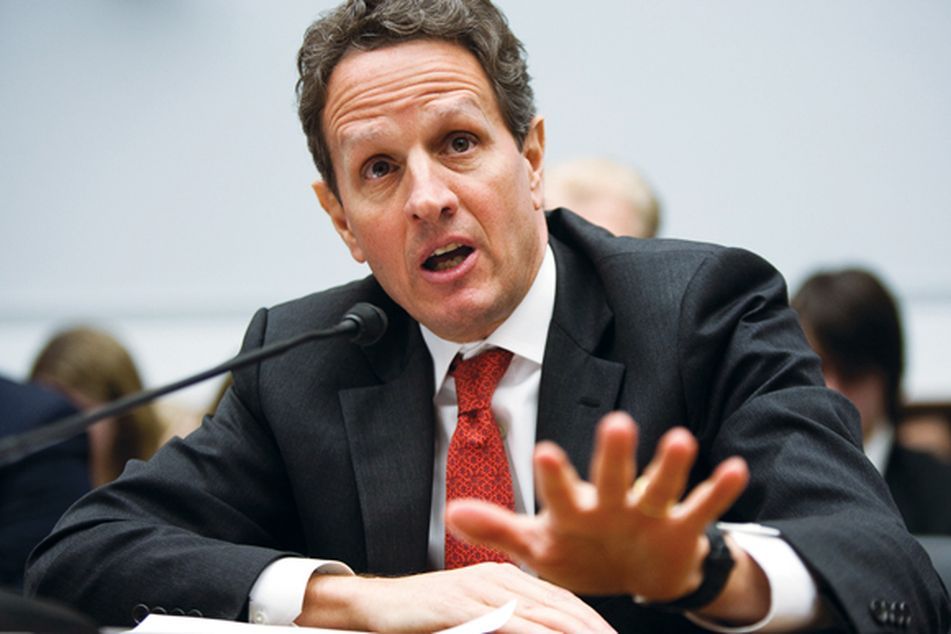Now, it’s Treasury that’s pulling cash from its retirement plan to pay bills
 Treasury Secretary Tim Geithner: Do as I say, not as I do.
Treasury Secretary Tim Geithner: Do as I say, not as I do.
Move to suspend investments will give the government about $156B in breathing room.
Regular investors aren’t the only ones who pull cash from their retirement savings to pay for today’s expenses.
The Treasury Department has announced that it will suspend investment of the federal employee pension fund so that it can avoid breaching the statutory debt limit.
In a Jan. 15 letter to members of Congress, Treasury Secretary Tim Geithner said he will be unable to fully invest the Government Securities Investment Fund of the Federal Employees Retirement System.
The so-called G Fund, a money market defined-contribution fund for federal workers, is invested in special-issue Treasury securities that count against the debt limit. The Treasury has the authority to suspend reinvestment of the G Fund if the secretary determines that the fund can’t be fully invested without exceeding the debt limit.
Suspending the investments “immediately frees up headroom under the debt limit,” according to a Dec. 26 document from the Treasury detailing the “extraordinary measures” the agency can take to keep the U.S. from defaulting on its obligations during congressional debt limit deliberations.
The fund’s balance is about $156 billion, so ceasing the investments can free up an equivalent amount of breathing room, according to the document.
Mr. Geithner noted in his letter that federal retirees and workers will not be affected by this move and that by law, the G Fund will be made whole after the debt limit is increased.
“Federal employees and retirees are understandably concerned that the US Treasury is forced to use their retirement funds to prevent a government default,” said Jessie Klement, legislative director at the National Active and Retired Federal Employees Association. “Congress should not rely on these funds as a safety net because they have failed to reach an agreement on how to pay our nation’s bills.”
Still, she added that her group does not believe that the temporary use of the retirement funds threatens the government’s obligation to pay federal retirees the annuities they’ve earned.
Indeed, this isn’t the first time the Treasury has suspended investments to the retirement fund. Mr. Geithner made such an announcement to Congress on Jan. 17, 2012, and May 16, 2011, according to the Government Accountability Office. In both scenarios, the G Fund’s uninvested principal was later invested and interest losses restored.
Learn more about reprints and licensing for this article.






